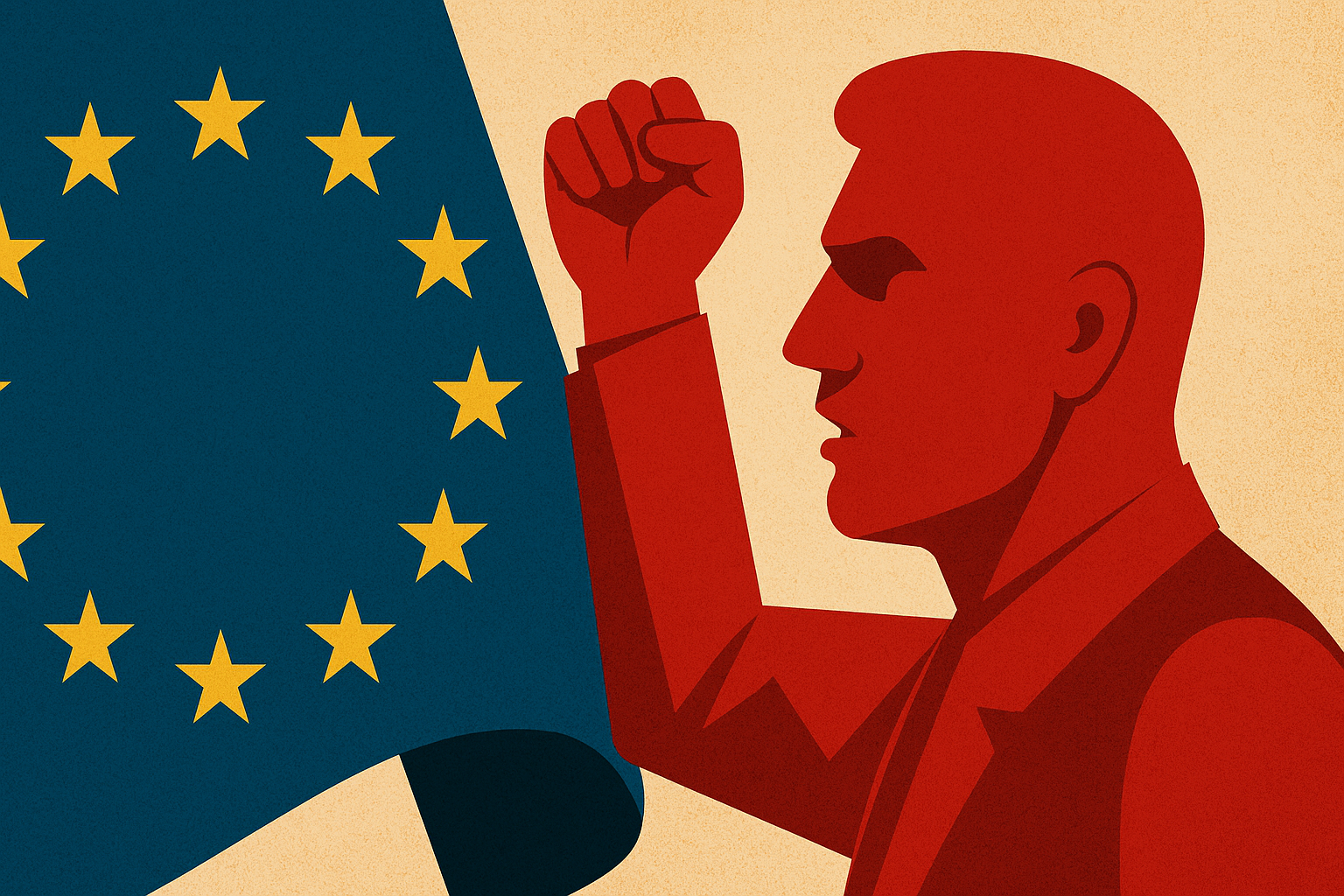European Parliament President Roberta Metsola has defended the legislature’s recent voting record amid criticism that mainstream parties have aligned with far-right groups on key legislation. Metsola, a member of the centre-right European People’s Party (EPP), argued that the far right’s growing influence reflects a new political landscape that lawmakers must confront pragmatically.
A Changed Political Balance
Following the 2024 European elections, hard-right parties collectively secured over a quarter of the seats in the 720-member assembly — reshaping traditional voting alliances. Metsola acknowledged this shift, saying:
“Political realities are what they are. Things are different now.”
The remarks come after controversy over parliamentary votes where the EPP sided with right-wing and far-right lawmakers to water down the EU’s green agenda and adjust regulatory policies. Metsola insisted that such coalitions were part of a complex and fragmented legislative environment, unlike national parliaments where governments typically command majorities.
Dispute Over Supply Chain Law
Tensions came to a head last week when a coalition of far-right MEPs and dissident Socialists blocked efforts to weaken a proposed corporate due diligence law. The legislation is intended to hold companies accountable for human rights and environmental abuses across their supply chains.
The unlikely alliance reflected divergent motives: far-right members argued that the amendments did not go far enough to protect businesses, while some Socialists viewed them as too lenient. The stalemate provoked frustration from EU leaders, with German Chancellor Friedrich Merz labelling the delay “unacceptable,” saying it hindered the bloc’s competitiveness against global rivals like the US and China.
Metsola, however, pushed back, noting that EU governments should persuade their national representatives to support the compromise:
“I have a letter signed by 22 heads of state telling me to ‘move’. How am I supposed to translate that into action without a majority?”
She expressed optimism that a new deal could be reached next month.
Fragile Pro-EU Coalition
The once-stable pro-European coalition that helped re-elect Metsola and European Commission President Ursula von der Leyen is now under strain. The Socialists and the liberal Renew Europe group have accused the EPP of betraying their partnership by making “side-deals” with far-right factions.
Both allies have warned they may block future legislation if the EPP continues to cooperate with extremist groups. Despite this, Metsola maintains that her leadership remains rooted in consensus-building:
“I will always work from the centre outwards. Eighty per cent of our votes are still secured by the EPP–Socialist–Renew coalition. But I’m ready to work with everyone.”
A Debate Over Deregulation
A major policy fault line is the EPP’s push for deregulation, framed as a response to public and business concerns about “excessive bureaucracy.” The initiative has found support from Italy’s Giorgia Meloni and her European Conservatives and Reformists (ECR) group, as well as from the new Patriots for Europe alliance on the far right.
Metsola argues that simplifying EU rules is necessary to ensure competitiveness and deliver results:
“If we need to deliver, we must see who’s in that coalition — and adapt to political realities.”
However, opponents such as the Greens and Socialists contend that the deregulation agenda risks undermining the EU’s climate commitments and favouring corporate interests. The Renew group remains divided on the issue.
Metsola’s Political Future
Metsola’s willingness to work with conservative and populist factions has led some MEPs to speculate that she is positioning herself for a second term beyond 2027. Traditionally, the European Parliament presidency is shared between the EPP and the Socialists over the five-year mandate.
Her predecessor, David Sassoli, a Socialist, died in 2022 shortly before the end of his term. Metsola, who succeeded him, has not ruled out serving until 2029, though she downplayed speculation about internal political bargaining.
“We’re only one year into the mandate,” she said. “People want a functioning parliament, not deal-making behind closed doors.”
Metsola also clarified that, unlike the European Council where leaders formally reappoint their president midway through a term, the European Parliament’s leadership is determined by direct votes of MEPs, not fixed power-sharing agreements.
“People value their independence, and they’ve shown it time and again,” she said.
A Shifting European Landscape
Metsola’s comments underscore the new reality of European politics, where centrist coalitions must navigate an emboldened far right. As the European Parliament wrestles with divisive issues ranging from climate policy to competitiveness, Metsola’s balancing act between pragmatism and principle will shape not only her leadership but the EU’s political direction in the years ahead.








